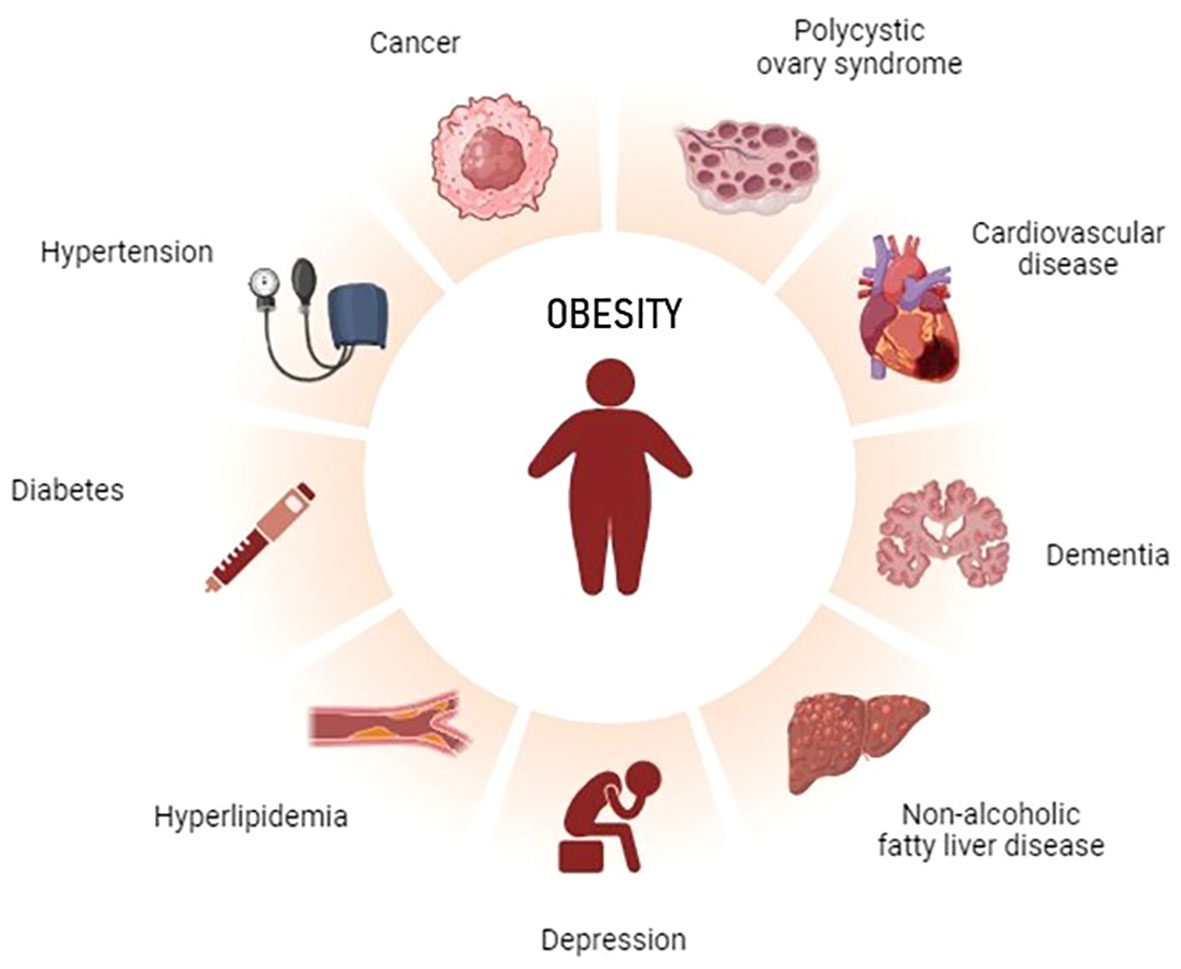What Risk Factor For Poorer Health Is More Prevalent In Adult Women Than In Adult Men?

Health disparities between men and women are well-documented, with adult women experiencing certain risk factors for poorer health at higher rates than men. While both genders face unique health challenges, several biological, psychological, and social factors contribute to women being more vulnerable to specific conditions.
In this article, we will explore the most prevalent risk factors affecting women’s health, why they are more common in women than men, and how women can take proactive steps to improve their well-being.
Mental Health Disorders – Higher Rates in Women

One of the most significant risk factors for poorer health in women is the higher prevalence of mental health disorders, particularly depression and anxiety. According to the World Health Organization, women are nearly twice as likely as men to suffer from these conditions.
Why Are Women More Susceptible
Hormonal fluctuations influence mood and emotional regulation. Changes during menstruation, pregnancy, postpartum, and menopause increase mental health risks
Higher emotional sensitivity leads to women internalizing stress and self-criticism more than men, making them more vulnerable to anxiety and depression
Social and cultural expectations place significant pressure on women related to caregiving, beauty standards, and work-life balance, increasing stress levels
How to Reduce the Risk
Seeking professional help if experiencing prolonged sadness, anxiety, or stress
Engaging in mindfulness, meditation, or therapy to improve emotional resilience
Building a strong support system with family, friends, or support groups
Autoimmune Diseases – A Gender Disparity
Autoimmune diseases occur when the immune system mistakenly attacks the body, and women account for nearly 80 percent of all autoimmune disease cases. Conditions like lupus, rheumatoid arthritis, and multiple sclerosis disproportionately affect women.
Why Are Women More Affected
Genetic and hormonal factors play a significant role, with estrogen influencing immune system activity and increasing susceptibility to autoimmune responses
Women naturally have stronger immune systems, which, while beneficial for fighting infections, can also turn against the body
Chronic stress can trigger autoimmune flare-ups, making stress management essential for women’s health
How to Lower the Risk
Maintaining a balanced diet with anti-inflammatory foods
Staying active and practicing stress-reduction techniques
Working with a doctor to monitor symptoms and manage autoimmune conditions effectively
Osteoporosis – Higher Bone Loss in Women
Osteoporosis, a condition that weakens bones and increases the risk of fractures, is far more prevalent in women than men. Studies show that women are four times more likely to develop osteoporosis, particularly after menopause.
Why Are Women at Greater Risk
Hormonal changes after menopause lead to a decline in estrogen, which is essential for maintaining bone density
Women naturally have smaller and thinner bones than men, making them more vulnerable to bone loss
Many women do not consume enough calcium and vitamin D, which are essential for strong bones
How to Strengthen Bone Health
Increasing calcium-rich foods like dairy, leafy greens, and almonds
Getting enough vitamin D through sunlight and supplements if needed
Engaging in weight-bearing exercises like walking, resistance training, and yoga
Heart Disease – A Leading Cause of Death in Women
While heart disease is often seen as a men’s issue, it is actually the number one cause of death in women. Unfortunately, heart disease symptoms in women are often different from those in men, leading to misdiagnosis or delayed treatment.
Why Are Women More Susceptible
Women experience underrecognized symptoms such as nausea, fatigue, jaw pain, or shortness of breath, rather than the classic chest pain commonly associated with heart attacks
After menopause, estrogen levels drop, increasing the risk of high blood pressure, cholesterol buildup, and other cardiovascular issues
Women are more likely to develop heart disease due to stress-related factors like caregiving responsibilities, workplace pressure, and emotional stress
How to Protect Heart Health
Eating a heart-healthy diet with lean proteins, whole grains, and healthy fats
Exercising regularly and managing stress through yoga, meditation, or deep breathing
Getting regular health check-ups to monitor blood pressure and cholesterol levels
Also Read: A Preferred Women’s Health Center Of Charlotte – Comprehensive & Compassionate Care!
Chronic Pain Disorders – More Common in Women
Women experience chronic pain conditions such as fibromyalgia, migraines, and irritable bowel syndrome more frequently than men. Studies suggest that women are more sensitive to pain due to differences in nerve processing and hormonal fluctuations.
Why Do Women Experience More Chronic Pain
Hormonal fluctuations, particularly estrogen levels, affect pain sensitivity and inflammation
Women’s nervous systems process pain differently, making them more sensitive to pain signals
Higher prevalence of autoimmune diseases in women contributes to chronic pain conditions
How to Manage Chronic Pain
Exploring holistic pain management techniques like acupuncture, physical therapy, and meditation
Maintaining an anti-inflammatory diet to reduce pain flare-ups
Consulting a doctor for tailored treatment options, including medication and lifestyle changes
FAQ’s
1. Why are mental health disorders more common in women than in men?
Women experience hormonal fluctuations during menstruation, pregnancy, and menopause, which impact mood regulation. Social and emotional pressures also contribute to higher rates of anxiety and depression.
2. What makes women more susceptible to autoimmune diseases?
Women’s stronger immune response, influenced by genetic and hormonal factors, increases the likelihood of developing autoimmune conditions like lupus and rheumatoid arthritis.
3. Why do women have a higher risk of osteoporosis?
Women naturally have smaller bones and experience a decline in estrogen after menopause, which accelerates bone loss and increases the risk of fractures.
4. How does heart disease affect women differently than men?
Women often experience subtle symptoms like nausea, fatigue, and shortness of breath instead of classic chest pain, leading to misdiagnosis and delayed treatment.
5. Why do women experience more chronic pain conditions?
Hormonal fluctuations and differences in pain processing make women more susceptible to chronic pain disorders such as migraines, fibromyalgia, and irritable bowel syndrome.
Final Thoughts: Prioritizing Women’s Health
Women face unique health challenges due to biological, hormonal, and social factors. Mental health disorders, autoimmune diseases, osteoporosis, heart disease, and chronic pain conditions are all risk factors more prevalent in women than in men. However, by taking proactive steps such as maintaining a healthy lifestyle, managing stress, and seeking medical care, women can improve their long-term well-being. Early detection and prevention are key. Staying informed, listening to the body, and prioritizing self-care can help women lead healthier and happier lives.
Related Post
- Princess Kazer – A Royal Journey of Grace, Courage, and Empowerment!
- Pernithia Galnith – Definition and Meaning!
- Chongqing 520m Building – A Symbol of China’s Vertical Vision and Urban Ambition!
- What Is Jahizekosedos – Meaning, Purpose & Possible Applications!
- Zazichotnoiz – A Deep Dive into Its Meaning and Significance!









